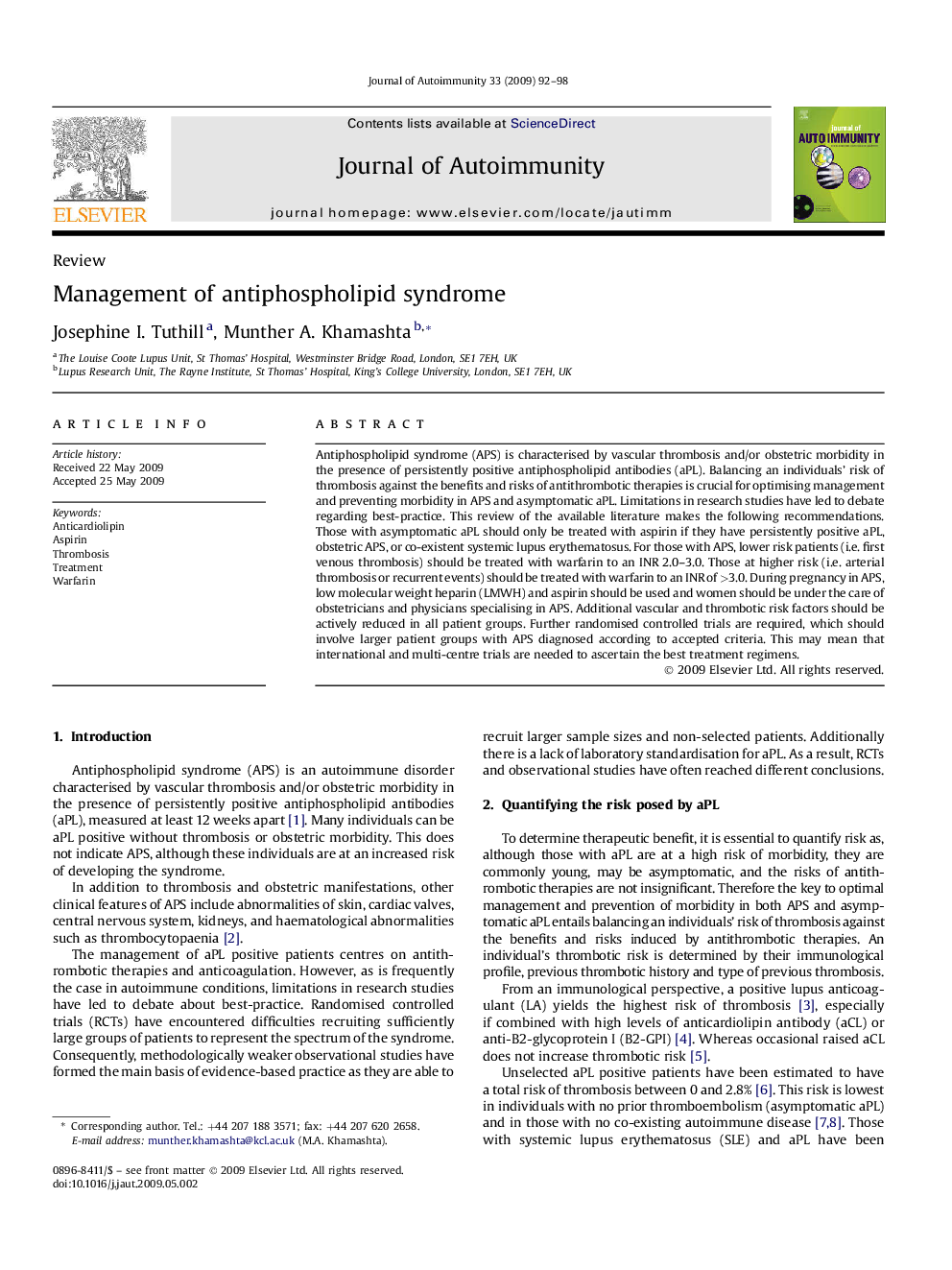| Article ID | Journal | Published Year | Pages | File Type |
|---|---|---|---|---|
| 3368236 | Journal of Autoimmunity | 2009 | 7 Pages |
Antiphospholipid syndrome (APS) is characterised by vascular thrombosis and/or obstetric morbidity in the presence of persistently positive antiphospholipid antibodies (aPL). Balancing an individuals' risk of thrombosis against the benefits and risks of antithrombotic therapies is crucial for optimising management and preventing morbidity in APS and asymptomatic aPL. Limitations in research studies have led to debate regarding best-practice. This review of the available literature makes the following recommendations. Those with asymptomatic aPL should only be treated with aspirin if they have persistently positive aPL, obstetric APS, or co-existent systemic lupus erythematosus. For those with APS, lower risk patients (i.e. first venous thrombosis) should be treated with warfarin to an INR 2.0–3.0. Those at higher risk (i.e. arterial thrombosis or recurrent events) should be treated with warfarin to an INR of >3.0. During pregnancy in APS, low molecular weight heparin (LMWH) and aspirin should be used and women should be under the care of obstetricians and physicians specialising in APS. Additional vascular and thrombotic risk factors should be actively reduced in all patient groups. Further randomised controlled trials are required, which should involve larger patient groups with APS diagnosed according to accepted criteria. This may mean that international and multi-centre trials are needed to ascertain the best treatment regimens.
